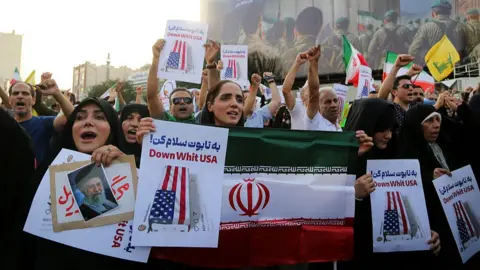Buhari death news: Former Nigerian President dies at 82 in London
Buhari death news has spread across Nigeria and the world as the nation mourns the passing of its former leader, Muhammadu Buhari. The ex-President, known for his military background and anti-corruption stance, passed away in London at the age of 82. His death marks the end of a controversial era in Nigerian politics, with mixed reactions emerging from citizens, political leaders, and international observers.
Buhari served as Nigeria’s President from 2015 to 2023, and his legacy remains a topic of heated debate. While some praise his efforts to fight corruption and improve security, others criticize his economic policies and failure to address rising inflation and unemployment.
Buhari death news: A legacy of mixed reactions
As Buhari death news broke, the nation was flooded with tributes, criticisms, and reflections on his time in office. The former President had been in and out of London for health reasons in recent years, with several hospitalizations raising concerns about his well-being.
His leadership was marked by significant security challenges, including Boko Haram and Fulani herder violence. Despite these efforts, many Nigerians felt that the economy deteriorated during his tenure, with fuel subsidies, inflation, and unemployment reaching record highs.
For more updates on Nigerian political developments, visit Al Jazeera.
Political reactions to Buhari death news
Political leaders from across Nigeria and Africa have issued statements in response to the Buhari death news. President Bola Tinubu described Buhari as a “patriot and statesman,” while opposition leaders have taken a more critical stance.
The Economic Community of West African States (ECOWAS) also released a statement, praising Buhari for his contributions to regional security and cooperation. However, many civil society groups have called for a reexamination of his legacy, especially regarding human rights and press freedom.
Buhari death news: Economic impact and public sentiment
The Buhari death news comes at a time when Nigeria is still grappling with the economic consequences of his policies. During his presidency, Nigeria faced a severe recession in 2016, followed by inflationary pressures and a foreign exchange crisis.
Despite his promises to curb corruption and diversify the economy, oil dependency remained high, and unemployment among the youth soared. His decision to remove fuel subsidies in 2023 triggered widespread protests and a national outcry.
According to reports from Al Jazeera, the economic effects of his policies are still being felt today, with many Nigerians questioning the long-term impact of his leadership.
Public perception of Buhari’s economic policies
Public perception of Buhari’s economic policies has always been polarized. While some praise his efforts to fight corruption and support the Naira, others point to the rising cost of living and youth unemployment as key failures.
A 2024 survey by Afrobarometer found that only 38% of Nigerians approved of Buhari’s economic record, while 62% believed the country regressed during his leadership.
Related: Former Nigerian leaders and their political legacies
If you’re interested in how other former Nigerian leaders are remembered, check out our article on Former Nigerian Leaders and Their Political Legacies. This piece explores how figures like Obasanjo and Abubakar are viewed in the public eye.
Buhari death news: Security and anti-terrorism efforts
One of the most notable aspects of Buhari’s leadership was his focus on security and counter-terrorism. The Buhari death news has reignited discussions about the successes and failures of his campaign against Boko Haram and other militant groups.
Under his administration, the military claimed significant victories in the fight against Boko Haram. However, new threats emerged, including the rise of banditry and ethnic violence in the North and Middle Belt regions.
The United Nations Office for West Africa and the Sahel (UNOWAS) has highlighted how Buhari’s security policies shaped the region. You can read more about this in their latest report on AllAfrica.
Rising insecurity during Buhari’s presidency
Despite Buhari’s strong security rhetoric, many Nigerians felt the country became less safe under his rule. Kidnappings for ransom, ethnic clashes, and attacks on schools and churches increased during his time in office.
Critics argue that while the Buhari death news has prompted reflection, it has also reopened wounds from a time of political tension and social unrest.
Buhari death news: A divided legacy
The Buhari death news has brought into focus a presidency that was both admired and criticized. His supporters praise his integrity and commitment to fighting corruption, while his detractors highlight economic stagnation and democratic backsliding.
The former President’s leadership was also defined by his military background and strict governance style. These traits earned him respect from some quarters and skepticism from others, especially in Nigeria’s more democratic and youth-driven communities.
As Nigeria prepares for the next chapter in its political journey, the Buhari death news serves as a moment of reflection on the nation’s past and future.
What does Buhari’s death mean for Nigeria’s political future?
The Buhari death news may influence political discourse in Nigeria, especially as the country approaches its 2027 elections. His legacy could become a rallying point for both pro-Buhari groups and those who wish to move beyond his era.
Political analysts believe that Buhari’s death may prompt a reevaluation of Nigeria’s security and economic policies, as well as a renewed push for more inclusive and transparent governance.



- Image 1: Name: former-president-buhari-press-conference.jpg | Alt Text: Former Nigerian President Muhammadu Buhari speaking at a press conference in Abuja
- Image 2: Name: buhari-death-reactions-lagos.jpg | Alt Text: Nigerian citizens reacting to Buhari death news in Lagos
- Image 3: Name: muhammadu-buhari-portrait.jpg | Alt Text: A portrait of former Nigerian President Muhammadu Buhari
For more updates on Nigerian political news and legacy analysis, visit Al Jazeera.
Related: Former Nigerian leaders and their political legacies
If you’re interested in how other former Nigerian leaders are remembered, check out our article on Former Nigerian Leaders and Their Political Legacies. This piece explores how leaders like Obasanjo, Abubakar, and Babangida are viewed by the public and media.
Source of this article: Al Jazeera